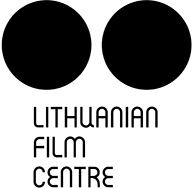International conference 2014: Crisis in Film and Visual Media
CALL FOR PAPERS
CRISIS IN FILM AND VISUAL MEDIA
An international conference hosted by Vilnius University (Vilnius, Lithuania), September 19-20, 2014
Co-organized by Contemporary Art Centre (Vilnius, Lithuania), and Lithuanian Film Centre/ Creative Europe Desk LT MEDIA Office (Vilnius, Lithuania).
With the participation of keynote speakers dr. Dina Iordanova (University of St. Andrews, Scotland), dr. Ewa Mazierska (University of Central Lancashire, England), dr. Diane Negra (University College Dublin, Ireland) and a filmmaker Arash T. Riahi (Golden Girls Filmproduktion, Austria).
The discourse of crisis has been frequently used in contemporary media and visual arts to reveal the dysfunctionality of political, economic, social and even artistic systems of capitalist states and encourage critical discussions on it. Since 2009, we have noticed a „revival“, and over-escalation of the discourse of crisis in media. This phenomenon is often scrutinized from the point of view of social economy, political theory, cultural studies, etc. in the context of global and national frameworks, such as economic and political instabilities, social disasters, moral declines, epistemological breaks and similar. However, contemporary philosophy (i.e. Felix Guattari, Michel Foucault, Naomi Klein) sees crisis as a certain potential or/and pre-condition for a historical change and transformation. Therefore crisis can cause an emergence of a new productive or destructive powers and a constitution of a new historical subject. For Paul Virilio contemporary art is a “victim” and a product of major social upheavals and challenges, like wars or terrorism.
Postmodern philosophers (including Neomarxists) and ideologists (i.e. Friedrich Hayek, Milton Friedman) as well as critics (i.e. Slavoj Žižek) of neoliberal theory point out that all types of crisis, which are experienced by capitalist societies, are inevitable, because they are caused by the very economic and political systems. Film and visual media are part of this system, therefore are periodically affected by the cyclical re-occurrence of crisis and even serve as producers of the discourse of crisis in the society. Moreover, visual media and art can be seen as a certain commentary on and an evidence of the ongoing crisis of representation in contemporary media and arts.
The focus on the crisis phenomenon in this conference is global and interdisciplinary. We expect proposals of papers and panels tackling a variety of approaches on crisis and different visual media and in diverse theoretical, cultural and geopolitical contexts and frameworks. The speakers are encouraged to look at the representations and reflections of political, social, economic, moral and artistic crisis in film, television, games and photography, both from the point of present day as well as historical perspective. We hope that the conference will contribute to the critical platform formation in order to develop new insightful approaches to theoretical and empirical studies on crisis in film and other visual media.
We invite papers and panels which focus but are not limited to:
– A historical reflection of economic and political effects on film and visual media development;
– Theoretical and critical approaches to crisis in film and media;
– Film and media reactions to the recent economic crisis in the capitalist world, political crisis in Ukraine and Arab countries and other regions of the world;
– Crisis as an opportunity and challenge for the society and arts;
– Crisis of representation in film and visual media;
– Identity crisis of nation-state and national cinema;
– The representations of crisis in interactive and news media;
– Ethical aspects of crisis and its representation in visual media;
– Ecological crisis in film and photography;
– The representation of the crisis “initiator” and those affected by it in visual media.
The deadline for submitting a paper and panel abstracts is June 10, 2014. Submission form and more information on the conference at www.filmconference.kf.vu.lt
Notifications of the Scientific Committee’s decisions will be sent out by June 20, 2014.
The call for papers submission deadline has been extended to Sunday 15 June.
Participants are invited to cover their travel and accommodation expenses (no reimbursement foreseen). For more logistical information please visit www.filmconference.kf.vu.lt.
Conference participation is free, but online registration is required.
Regarding questions on the conference please e-mail at renata.sukaityte@kf.vu.lt




Comments are closed.